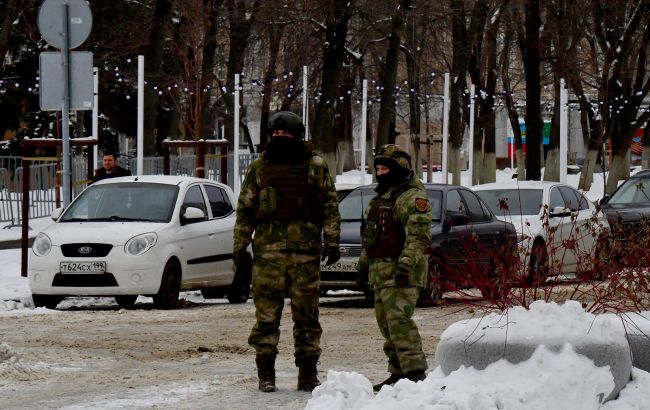Strike on Belbek airfield: British intelligence explains consequences for Russians
 Photo: British intelligence explained the consequences for the Russians after the attack of the Armed Forces on the airfield "Belbek" (Getty Images)
Photo: British intelligence explained the consequences for the Russians after the attack of the Armed Forces on the airfield "Belbek" (Getty Images)
The strike by Ukrainian military on the Belbek airfield, located in the temporarily occupied Crimea, is likely to diminish terrorists' ability to coordinate air activity in the Black Sea region, according to the British intelligence.
According to intelligence reports, on January 31st, Ukrainian soldiers destroyed a bunker of the Russian radar control coordination center, which, in turn:
- will diminish Russia's ability to coordinate air activity in the Black Sea region;
- will increase the workload on the already stretched A-50 MAINSTAY aircraft fleet'
- will add pressure on the increasingly fatigued pool of Russian personnel capable of managing air operations.
"The Russian air doctrine heavily relies on ground control points, such as Belbek, for coordinating its air forces, especially fighters. This is particularly relevant during ongoing hostilities when the airspace is competitive and becoming increasingly complex," the intelligence adds.
It is noted that Russian pilots and ground personnel are likely suffering from combat fatigue, and any further strikes on critical coordination nodes in Crimea will likely increase pressure, creating a higher likelihood of error or miscalculation.
Attack on Belbek airfield
On January 31st, explosions were heard multiple times in the temporarily occupied Crimea. Local Telegram channels posted photos and videos showing traces of rockets in the sky. There were also reports of a fire near the Belbek airfield located in Sevastopol. The Russians, in turn, claimed that dozens of rockets were allegedly launched.
Later, the Commander of the Air Force of the Armed Forces of Ukraine, Mykola Oleshchuk, hinted at an attack on the Belbek airfield.
On February 1st, Russian media reported that a communication point at the airfield may have been targeted.

